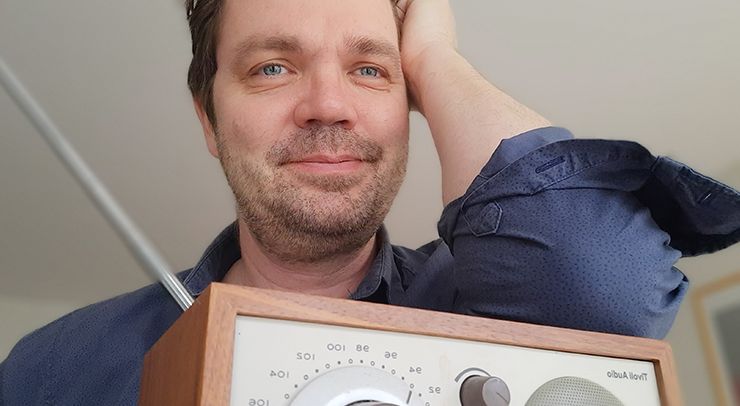A passion for the media

Florent Latrive graduated from UTC majoring in Computer Science Engineering in 1995 but never in fact worked as an engineer. With a driving passion for the press and the impact of technology on Society, he is Editorial Director of digital journalism at France Culture and associate lecturer in digital journalism at the French Press Institute (University of Paris 2 Panthéon-Assas). Here Interactions offers a portrait of a man whose passion for the media has allowed him to open many hard-locked doors.
How did he acquire his passion for the media? He already cultivated it during his years at UTC, which he joined for “modularity of the courses taught there and their diversity, in particular the part of human sciences which was in the programme such as philosophy with Bernard Stiegler or ethics. What was exciting, he found, was that, whatever the course, the teaching philosophy at UTC was to encourage us to reflect on what we were doing, what we were learning, on the profession in general and on the impact of technologies on society in particular. As an avid reader of the press, I was particularly interested in this last aspect,” he says.
How did he get into the media circles? When I returned from my end-of-study internship in Hungary, I was wondering, like any other young graduate, what I wanted to do. That’s when I met the Editor-in-Chief of Oise Hebdo, one of whose journalists had just broken a leg and who was looking for a replacement to report on a jubilee wedding celebration ceremony in a small village not far from Compiègne. And that was a revelation. I enjoyed it somuch that I said to myself: “This is what I want to do. It became obvious to me, and I have become passionate about the press,” explains Florent Latrive.
After a few months at Oise Hebdo, Paris beckoned, so to speak. “With my background in computer science and a mastery of new technologies, I set out to exploit them as a journalist. But in the second half of the 1990s, the Internet began to take off for the general public, and the arrival of mobile phones raised a number of questions. Questions of regulation, questions of use, societal questions, political questions, all things that fascinated me,” he says.
In Paris, he opted for the newspaper Libération [betterknown as “Libé”] which already had an eight-page weekly multimedia section that dealt with these issues. “They took me on a fixed-term contract and I worked on various subjects such as wolf hunting and sudden infant death syndrome. Subjects that are far removed from technology. But for Libé, not having graduated from a journalism school, it was a way of testing me, of shaking me in all directions by putting me in competition with young journalism school graduates. At the end of this fixed-term contract, I signed a long-term contract followed by a permanent contract. I held various positions here but I have always been interested in science, technology and their impact on Society; the rise of the Internet and the questions of governance it raises, those of copyright and intellectual property. I have written books on all these varied issues,” he says. He worked with Libé for almost twenty years, including seven years, from2007, as Editor-in-Chief of the paper’s website. “I accompanied the digital transformation of the newspaper and created, for example, “Libé Labo”, the audio and video workshop of Libération. Back in 2007, we were already doing what seemed avant-garde at the time, podcastsand video formats,” explains Florent Latrive.




